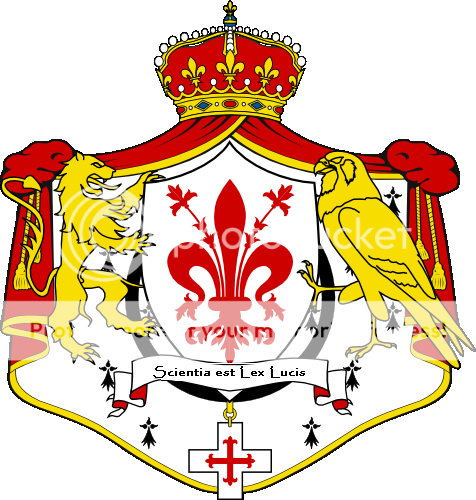--Information Subject to Change, New Factbook Coming Out Soon--
The Kingdom of Greater Rhodes
Le Royaume de Grandes Rhodes
Il Regno di Grandi Rodi

Le Royaume de Grandes Rhodes
Il Regno di Grandi Rodi

Motto: Scientia est Lux Lucis (Latin)
"Knowledge is Enlightenment"
Anthem: March of the Colossus
Capital: The Federal District of Valentia
Largest City: Nieuw-Amsterdam
Official (de jure) Languages: English, French, Italian
Recognized Regional (de facto) Languages: Occitan, Corsican, Arabic, Dutch
Demonym: Rhodian
Establishment: May 29th, 1798
Government: Federal Democratic Parliamentary Constitutional Monarchy
--King: Johannes V
--Prime Minister: Thomas Benetton
Legislature: Federal Parliament / Parlement Fédéral / Parlamento Federale
--Upper House: Senate / Sénat / Senato
--Lower House: National Assembly / Assemblée Nationale / L'Assemblea Nazionale
Population: 106 080 000
Population Density: 125.53 people/km2
Area: 845 050 km2
Currency: Rhodian Ducat (GRD)
Gini Coefficient: .28
HDI: 0.988
Drives on the: Right
Internet TLDs: .gr, .kgr, .rgr
Calling Code: +9








